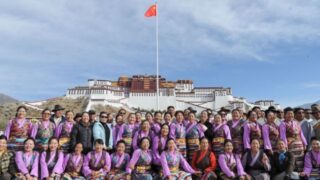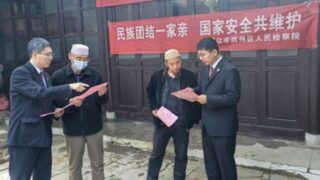Freedom of religion exemption apply to a refusal to comply with state sewage laws based on a refusal of modern technology.
by Massimo Introvigne


On July 2, the U.S. Supreme Court applied its recent precedent Fulton v. the City of Philadelphia, where it found in favor of Catholic nuns operating a foster care agency that was denied a contract with the City of Philadelphia, because of its religiously motivated refusal to serve same-sex couples, to vacate a judgement of a Minnesota Court of Appeals. The Minnesota judges had compelled an Amish community to install septic tanks they claim they cannot accept for religious reasons.
“Amish” is in fact a label covering different groups, with different attitudes to modern technology. The Swartzentruber Amish of Minnesota are among the strictest, and they believe to have modern running water systems in their home to be against the Bible. Water is either pumped by hand, or delivered by gravity from an external cistern.
In 2013, Minnesota’s Fillmore County, where the Swartzentruber Amish are located, issued a new ordinance on the disposal of gray water, i.e., the water used for laundry, washing dishes, and similar. The ordinance requested all homes to have modern septic systems, and septic tanks to dispose of gray water. The Swartzentruber Amish refused to comply, saying this was against their religion.
Fillmore County’s reaction, the Supreme Court noted, was unduly aggressive. It threatened criminal in addition to civil action against 23 Amish families, threatened seizures of the farms, and called for an inspection of the Amish homes to ascertain whether their refusal of other modern technologies was not also against the law. The state trial court rejected the County’s most radical demands, but still asked the Amish to install the septic tanks, rejecting their offer to install instead wood chip basins as “natural” systems to clean gray water (which states other than Minnesota allow as an alternative to septic tanks).
The Minnesota Court of Appeals sided with the trial court, and the Minnesota Supreme Court declined to review the case. The Amish then took the case to the U.S. Supreme Court.
In his opinion, Justice Gorsuch explained that the Minnesota courts misinterpreted the “compelling interest” principle. “As Fulton explains, he noted, strict scrutiny demands ‘a more precise analysis.’ Courts cannot ‘rely’ on ‘broadly formulated’ governmental interests, but must ‘scrutinize the asserted harm of granting specific exemptions to particular religious claimants.’ Accordingly, the question in this case ‘is not whether the [County] has a compelling interest in enforcing its [septic system requirement] generally, but whether it has such an interest in denying an exception from that requirement to the Swartzentruber Amish specifically.” Fulton teaches that “[S]o long as the government can achieve its interests in a manner that does not burden religion, it must do so,” and the Amish had offered an alternative to the septic tank system.
In the United States, Justice Gorsuch concluded, the Constitution and the law “prohibit governments from infringing sincerely held religious beliefs and practices except as a last resort. Despite that clear command, this dispute has staggered on in various forms for over six years. County officials have subjected the Amish to threats of reprisals and inspections of their homes and farms. They have attacked the sincerity of the Amish’s faith. And they have displayed precisely the sort of bureaucratic inflexibility [the law] was designed to prevent. Now that this Court has vacated the decision below, I hope the lower courts and local authorities will take advantage of this ‘opportunity for further consideration,’ and bring this matter to a swift conclusion. In this country, neither the Amish nor anyone else should have to choose between their farms and their faith.”









